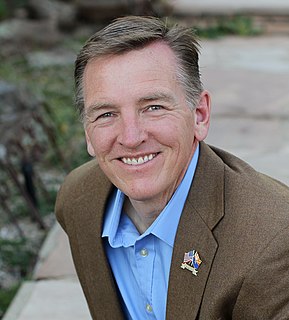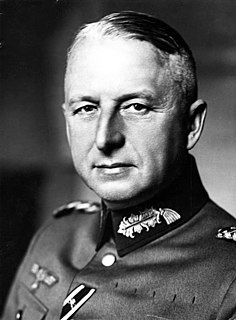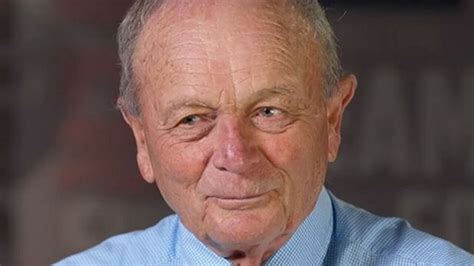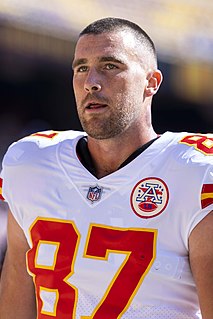A Quote by Colin Powell
The commander in the field is always right and the rear echelon is wrong, unless proved otherwise. In my experience, the people closest to the problems are often in the best position to see the solutions. The key here is to empower and not be the bottleneck.
Related Quotes
We cannot distinguish truth from falsehood, right from wrong, or know what obedience we owe to the magistrate, or what we may justly expect from him, unless we know what he is, why he is, and by whom he is made to be what he is.... I cannot know how to obey unless I know in what, and to whom; nor in what unless I know what ought to be commanded; nor what ought to be commanded unless I understand the original right of the commander, which is the great arcanum.
The general verdict among the German generals I interrogated in 1945 was that Field-Marshal von Manstein had proved the ablest commander in their Army, and the man they had most desired to become its Commander-in-Chief. It is very clear that he had a superb sense of operational possibilities and equal mastery in the conduct of operations, together with a greater grasp of the potentialities of mechanized forces than any other commander who had not been trained in the tank arm. In sum, he had military genius.
No leader can possibly have all the answers . . . .The actual solutions about how best to meet the challenges of the moment have to be made by the people closest to the action. . . .The leader has to find the way to empower those frontline people, to challenge them, to provide them with the resources they need, and then to hold them accountable. As they struggle with . . . this challenge, the leader becomes their coach, teacher, and facilitator. Change how you define leadership, and you change how you run a company.
I think when you have so many people working for American-based think tanks and American-based defense companies, there is always going to be a bent towards proposing American-led solutions for foreign problems. People get paid big money in Washington to come up with ways that America can fix problems overseas, and they are not always right.
If you ever are fortunate enough to experience an open field in front of you as a tight end - and honestly, that's something not many guys at this position ever get to experience in the NFL - the one thing that you know for certain is that there are people faster than you who are right behind you and want you to fumble the ball.
When there is pressure for leaders to respond to problems or crises, they often simply intensify their efforts in their particular defined sphere of activity - even if that's not relevant to the real problem. To do otherwise requires taking on entrenched practices and asserting power in areas where it often will not be well received. And leaders tend to see major crises more as threats to their own position rather than as systemic challenges for the societies that they govern or the institutions that they manage.
I tell people to look at me and understand that everybody first told me that I couldn't be a 6-foot, 9-inch point guard, and I proved them wrong. Then they told me I couldn't be a businessman and make money in urban America, and I proved them wrong. And they thought I couldn't win all these championships, and I proved them wrong there as well.
Nobody taught me to play bottleneck. I just saw it and taught myself. I got an old bottle and steamed the label off, put it on the wrong finger, I basically did everything wrong until I met some of the Blues legends early in my career who taught me another way. I didn't have anyone to tell me women didn't play bottleneck.
They know that people need witches; they need the unofficial people who understand the difference between right and wrong, and when right is wrong and when wrong is right. The world needs the people who work around the edges. They need the people who can deal with the little bumps and inconveniences. And little problems. After all, we are almost all human. Almost all of the time.











































